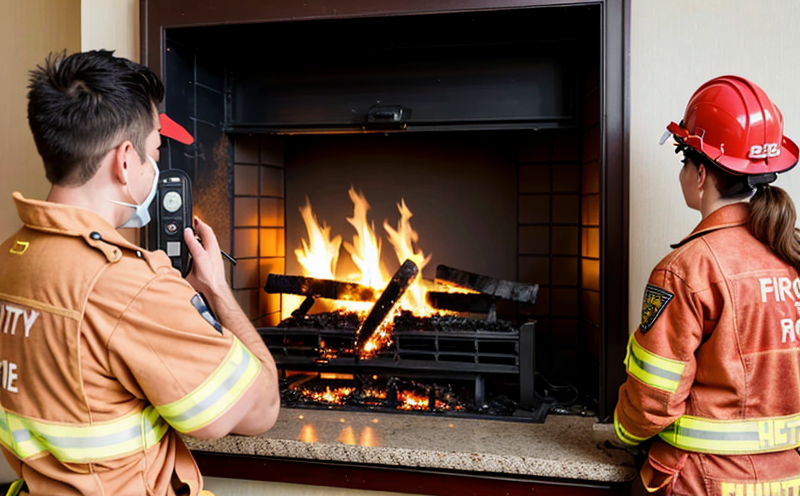Hotel fire safety inspection
The hotel industry is a high-risk environment where fire safety is paramount. Hotels are densely populated with various types of materials that can fuel fires easily and spread quickly. Regular inspections ensure compliance with local regulations, minimize risks to guests, staff, and property, and protect the brand’s reputation.
Fire safety inspections are critical for hotels because they identify potential hazards before they escalate into full-blown emergencies. These inspections assess various aspects of fire protection systems including detection, suppression, communication, and emergency procedures. Compliance with international standards such as NFPA 101: Life Safety Code and EN 354 is essential.
The inspection process involves a thorough review of fire safety equipment installed in hotels like smoke detectors, sprinkler systems, fire extinguishers, and fire doors. Additionally, it includes evaluating the emergency lighting, evacuation routes, fire drills, and staff training programs. All these components play crucial roles in ensuring that everyone can respond effectively to any fire incident.
During an inspection, technicians check for proper installation, maintenance, and functionality of all systems. They also assess whether staff are adequately trained on how to operate the equipment during emergencies. Compliance with specific standards ensures consistent quality across different establishments within the same chain or network. This helps maintain uniform safety levels throughout a group’s properties.
Hotels must keep detailed records of their fire protection system inspections, which should be conducted at regular intervals as mandated by local authorities. Such documentation is vital for proving compliance during audits and ensuring that any necessary corrections are made promptly.
Applied Standards
The inspection process strictly adheres to several key standards including NFPA 101: Life Safety Code, NFPA 72: National Fire Alarm Code, and EN 354: Classification of Flammable Liquids. These guidelines provide comprehensive frameworks for assessing fire safety systems in hotels.
- NFPA 101: This standard sets forth requirements to ensure that buildings are safe from the hazards of fire, smoke, and other environmental factors affecting life safety.
- NFPA 72: It specifies performance criteria for fire alarm systems, including design, installation, testing, operation, and maintenance. Compliance with this code guarantees reliable communication between occupants and authorities during emergencies.
- EN 354: This European standard provides classifications for flammable liquids based on their flashpoints and boiling points. Understanding these categories helps in managing risks associated with fuel storage areas within hotels.
Compliance with these standards ensures that fire safety inspections conducted are thorough, accurate, and consistent across multiple locations. It also facilitates easier benchmarking against industry best practices.
Industry Applications
| Application Area | Description |
|---|---|
| Fire Protection System Installation | Evaluates the installation quality of fire alarms, sprinklers, and other protective devices. |
| Maintenance Checks | Ensures ongoing functionality through regular servicing and testing of systems. |
| Emergency Preparedness | Assesses evacuation procedures, emergency lighting, and staff training programs. |
| Compliance Verification | Confirms adherence to local and international regulations regarding fire safety. |
The hotel industry relies heavily on robust fire protection systems to safeguard against accidental fires. Proper inspection ensures that these systems are functioning correctly, which is critical for preventing loss of life and property damage during emergencies.
- Fire Detection: Ensures early detection through proper placement and calibration of smoke detectors, heat sensors, and other devices.
- Suppression Systems: Checks the integrity and readiness of sprinkler systems to extinguish fires promptly.
Regular inspections play a vital role in maintaining optimal performance of these critical components. This not only enhances safety but also supports continuous improvement efforts aimed at reducing overall risk levels.
Customer Impact and Satisfaction
- Enhanced Safety: Guests feel more secure knowing that rigorous inspections are conducted to maintain high standards of fire protection.
- Regulatory Compliance: Hotels stay compliant with local regulations, avoiding potential penalties or closures due to non-compliance.
The impact extends beyond just compliance; it also contributes significantly towards enhancing the brand’s reputation. Positive reviews and word-of-mouth referrals result from satisfied customers who perceive their safety as a priority for management.
Hotels that invest in regular inspections demonstrate their commitment to guest well-being, which fosters long-term loyalty among patrons. Moreover, such proactive measures can save businesses substantial costs associated with insurance premiums and potential legal action arising out of accidents or mishaps.





